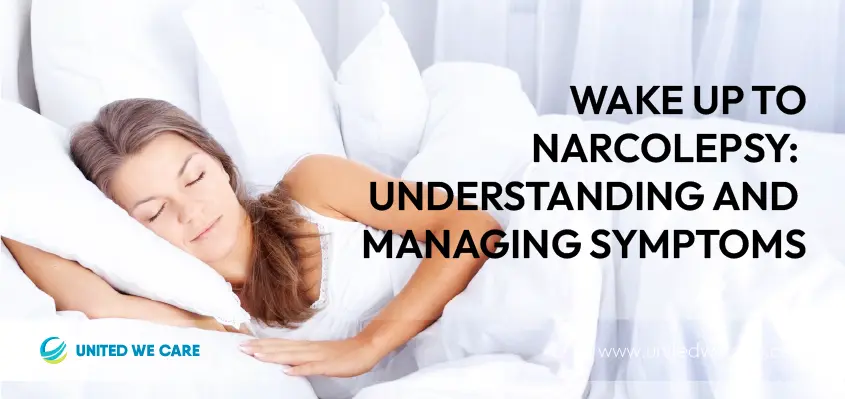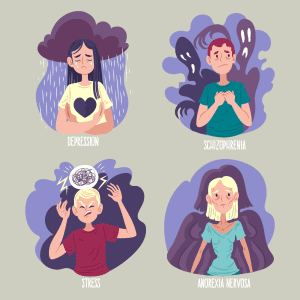Introduction
Imagine a scenario in which you and your friends have decided to go rafting. All of you are having fun, but suddenly, you notice that one of your friends is asleep. You are in the middle of a rapid, you are all supposed to hold your body weight and navigate the raft but this person is snoring, unable to stay upright. Chances are, you will be both surprised and scared. You might also judge the friend. But this is a neurological condition called Narcolepsy. This disorder causes excessive daytime sleepiness and other disruptive symptoms, which can be both dangerous and distressing. In this article, we will explore various aspects of Narcolepsy, including its causes, symptoms, diagnosis, and management strategies.
What is Narcolepsy?
Narcolepsy is a chronic sleep disorder in which a person experiences excessive daytime sleepiness. It almost appears as if they are getting sleep attacks, which they have no control over. These attacks occur regardless of their sleep duration the night before. These episodes of sleepiness can occur at inappropriate times, such as during work, conversations, or even while driving which poses a great risk to everyone involved. Many times, a sleep attack comes when the person is emotionally charged, for example, in a concert or when cheering for a favorite team [1].
It is a relatively uncommon condition and affects approximately 0.03% to 0.16% of the population [1]. Narcolepsy starts during adolescence or early adulthood and stays throughout life; that is, it is chronic in nature. Along with excessive daytime sleepiness or EDS, the person often experiences cataplexy (loss of control of muscles), sleep paralysis, and hallucinations [1]. [2].
Must read about- Hypersomnia
What are the Symptoms of Narcolepsy?
There are four primary symptoms of Narcolepsy. However, the frequency and intensity of these symptoms may vary in people. The symptoms are [1] [2] [3]:
- Excessive Daytime Sleepiness (EDS): EDS is the main symptom of Narcolepsy. It involves overwhelming sleepiness during the day and is often accompanied by an irresistible urge to sleep. People with Narcolepsy struggle to stay awake and may unintentionally fall asleep in various situations.
- Cataplexy: Cataplexy is a sudden loss of control of one’s muscles. It is triggered by intense emotions such as laughter, surprise, or anger. Not everyone with Narcolepsy experiences cataplexy but those who do can experience it in varied intensity. In some people, it might look like mild muscle weakness, but in others, it might involve complete physical collapse.
- Sleep Paralysis: Sleep paralysis is a temporary inability to move or speak when falling asleep or waking up. This sensation can be distressing but typically lasts only a few seconds to a few minutes.
- Hypnagogic Hallucinations: These are vivid and often terrifying hallucinations that occur when falling asleep or waking up. The person reports seeing or hearing things, and some people also report sensations of touch and body movement.
Apart from the common symptoms mentioned above, two additional symptoms may also appear in Narcolepsy. These include [3]:
- Automatic behaviors: When people with narcolepsy are engaged in activities like eating, talking, driving, or typing, they may experience short episodes of sleep. Outwardly, they will still appear to engage in the activity, but they are experiencing sleep. It can negatively affect their performance and cause them to forget their actions.
- Fragmented sleep and insomnia: Despite experiencing EDS, people with Narcolepsy often struggle to stay asleep at night, and their sleep is frequently disrupted.
Read more about- I am not able to sleep
What are the Causes of Narcolepsy?
Researchers still don’t know the exact cause of Narcolepsy. But the research that has been done suggests that a combination of genetic and environmental causes are the reason for it. Here are the key factors believed to play a role in the onset of Narcolepsy:
- Genetic Predisposition: Studies have shown that specific genes related to the immune system and the production of hypocretin (a neurotransmitter involved in regulating sleep) might be responsible for narcolepsy [2] [4].
- Autoimmune Response: One mechanism that might be responsible for Narcolepsy is an autoimmune response, where the body’s immune system mistakenly attacks and destroys the hypocretin-producing cells in the brain.
- Hypocretin Deficiency: Most individuals with Narcolepsy have lower hypocretin levels in their cerebrospinal fluid. Thus, damage of hypocretin-producing cells that produce hypocretin may be responsible for Narcolepsy [2].
- Environmental Triggers: Researchers have linked infections to the development of Narcolepsy. Other potential triggers include hormonal changes, physical or emotional stress, and changes in sleep patterns [4].
Most information about- Hypersomnolence Disorder
How to Diagnose Narcolepsy?
One of the challenges with Narcolepsy is that the diagnosis is difficult, which means it is often delayed. According to one estimate, it may take somewhere between 8 to 22 years for a correct diagnosis after the appearance of symptoms [5].
Diagnosis is usually done by sleep experts, and they are most likely to follow the procedure given below [5]:
- Thorough physical and medical examination
- Administration of self-report tests
- A complete history of the client.
- Sleep monitoring and ruling out other disorders.
- Multiple sleep latency tests (MSLT) to find sleep latency or the amount of time it takes for a person to fall asleep. If the duration is less than 8 minutes it could indicate Narcolepsy.
After finishing the above tests the expert will match the results with usual diagnostic standards for Narcolepsy. The standard Diagnostic criteria for Narcolepsy, according to DSM-5, is EDS at least three times per week for a minimum of three weeks. Apart from that, at least one out of Cataplexy, hypocretin deficiency, or abnormal sleep latency must be present [6]. If there is a match, the doctor will provide a diagnosis.
Read more about- 5 sleep Hygiene tips to improve sleep
How to Live With Narcolepsy?
Unfortunately, you cannot cure Narcolepsy. However, with proper guidance and treatment plans you can manage most of its symptoms. The most common treatment routes are [2] [3] [5] [7]:
- Medication: Doctors often prescribe medications to manage the symptoms of narcolepsy. For example, stimulants like amphetamines help with EDS, and sodium oxybate can reduce cataplexy.
- Sleep Hygiene and Strategic Napping: One of the best ways you can reduce some symptoms is by establishing a consistent sleep schedule. You can also schedule short naps into daily routines to combat excessive daytime sleepiness to boost alertness.
- Lifestyle Modifications: Your overall well-being is heavily dependent on your lifestyle and habits. Adopting a healthy lifestyle can give you optimal health and might reduce the impact of Narcolepsy. Other modifications like wearing clothes with thermoregulation, having a light meal before bed, and avoiding alcohol and caffeine can benefit you as well.
- Safety Measures: In Narcolepsy, safety is a major concern. If you fall asleep while doing crucial tasks like driving, walking down the stairs, etc it can be really harmful for you and others. It is essential to inform others about your condition and negotiate for necessary precautions to ensure everyone’s safety.
- Emotional Support: It is obvious that these symptoms can take a psychological toll on you. They might even cause issues in your relationships. Building a network of supportive individuals is essential. You can get support from counselors, support groups, or online communities to deal with these challenges.
Conclusion
Narcolepsy is a difficult condition to live with. It can affect all areas of your life and cause significant harm. However, it is possible to seek help and still lead a healthy and happy life. Go to a good doctor to understand the causes and get a diagnosis. The individual treatment plan that the doctor will give can help you with symptoms.
If you are struggling with Narcolepsy, contact the sleep experts at United We Care. Our experts can provide you with guidance and solutions for your problem. You can also join our Advanced Program for Sleep Disorder to learn and manage your condition better.
References
- D. H. Barlow and V. M. Durand, “Eating and Sleep Disorders,” in Abnormal psychology: An integrative approach, 6th ed., California, USA: Wadsworth, Cengage Learning, 2012, p. 295-296.
- J. Peacock and R. M. Benca, “Narcolepsy: Clinical features, co-morbidities & treatment,” Indian Journal of Medical Research, 2010.
- “Narcolepsy,” National Institute of Neurological Disorders and Stroke, https://www.ninds.nih.gov/health-information/disorders/narcolepsy (accessed Jun. 23, 2023).
- C. L. Bassetti et al., “Narcolepsy — clinical spectrum, aetiopathophysiology, diagnosis and treatment,” Nature Reviews Neurology, vol. 15, no. 9, pp. 519–539, 2019. doi:10.1038/s41582-019-0226-9
- E. C. Golden and M. C. Lipford, “Narcolepsy: Diagnosis and management,” Cleveland Clinic Journal of Medicine, vol. 85, no. 12, pp. 959–969, 2018. doi:10.3949/ccjm.85a.17086
- A. Keller and A. J. Blaivas, “DSM 5 Narcolepsy Diagnostic Criteria,” MyNarcolepsyTeam, https://www.mynarcolepsyteam.com/resources/dsm-5-narcolepsy-diagnostic-criteria (accessed Jun. 23, 2023).
J. Bhattarai and S. Sumerall, “Current and future treatment options for narcolepsy: A Review,” Sleep Science, vol. 10, no. 1, 2017. doi:10.5935/1984-0063.20170004










